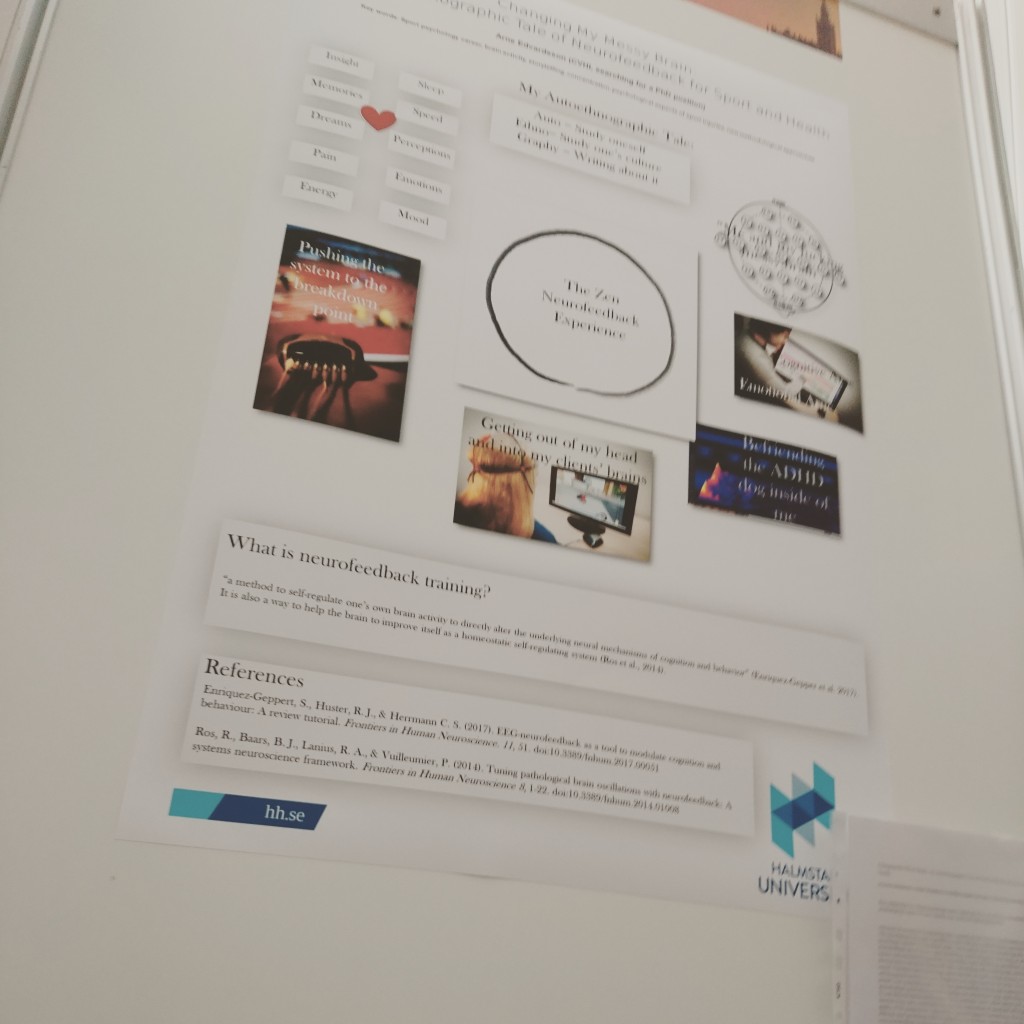Arnes NeurofeedbackPoster presentation på ISSP konferensen i Sevilla
Från den 9:de till den 16:de juli var jag nere i Sevilla tillsammans med högskolan i Halmstad-teamet och deltog på ”International Society of Sport Psychology” (ISSP) konferensen (vilket är lite som OS för personer som arbetar inom idrottspsykologi). Det var en otrolig spännande och lärorik resa. Jag träffade massa trevliga människor och fick uppleva det bästa av Andalusien. Jag dokumenterade resan som representant för Svensk idrottspsykologisk förening och lade upp en massa trevliga bilder på SIPFs nystartade instagramkonto.
Detta var den 14:e världskongressen och den motsvarade mina högställda förväntningar både när det kommer till upplevelser och hetta (i snitt var det 43 grader varmt om dagen!).
Under konferensen presenterade jag en poster om neurofeedbackträning. Det var en ärlig och självutlämnande poster där jag öppet beskrev mina upplevelser av att ha tränat neurofeedbackträning själv de senaste fyra åren. Nedan så kan ni finna det abstract som publicerades:
Changing My Messy Brain: An Autoethnographic Tale of Neurofeedback for Sport and Health
(1) Arne Edvardsson, Center of research on Welfare Health and Sport, Halmstad University, Sweden.
Key words (Max 6): Sport psychology career, brain activity, storytelling, concentration, psychological aspects of sport injuries, new methodological approaches
Advances in neuroscience technology have opened up new ways of understanding the brain. This development has made it possible to work with new methodological approaches in sport psychology research. In the present study, I (first author) share an autoethnographic neurofeedback tale of my own sport psychology career struggles; from being an athlete with injuries and concentration problems to becoming a sport psychology practitioner using a neurosciences conceptual framework with a developing self-compassionate understanding of myself. Pursuing a sport psychology career has been as much a social mission as it has been a self-therapeutic journey trying to change my own messy brain for the better. Over a 4-year period I took systematic notes of my own neurofeedback training and responses to different neurofeedback protocols (e.g., SMR training over sensorimotor strip, alpha theta training at Pz and different bipolar placements). These systematic notes, which started with a cognitive-function focus, have continued to develop into explorations of emotional self-regulation and quality of life perspectives. I discuss the important lessons I learned (e.g., how to integrate different sport psychology skills to optimize neurofeedback learning, how to talk about one’s own neurofeedback experiences with clients). I hope future researchers will continue investigate this first-person, experiential neuroscience perspective that potentially can contribute to a better understanding of our brains and the potential of neurofeedback training for ourselves and the athletes and coaches we serve.
/Arne Edvardsson, Neurofeedbacktränare på Sportfeedback

